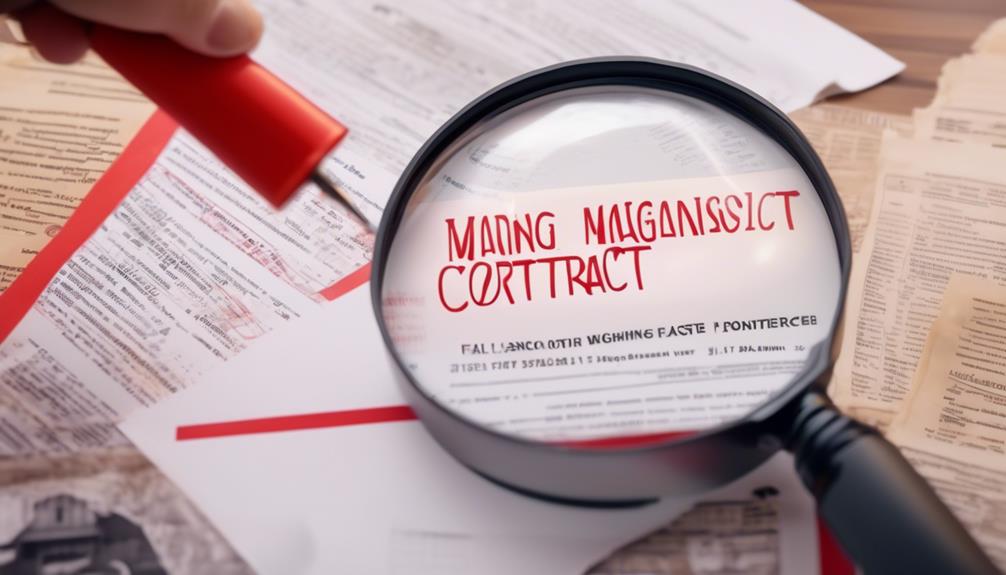Real estate scams have caused financial losses and legal issues for homebuyers and investors. Therefore, it's crucial to employ preventive strategies. These strategies can shield individuals from the growing complexity of scams, ensuring the safety of their finances and investments in the real estate market.
Understanding Common Real Estate Scams

Understanding prevalent real estate scams can help individuals safeguard against fraudulent schemes. Real estate professionals advise caution when sharing personal information and verifying the legitimacy of requests. One common scam involves impersonation of agents or property owners to obtain personal information or money. Scams often occur through email or online listings, where scammers pose as legitimate agents or owners. To avoid falling victim, buyers should verify identities before sharing personal information or making transactions. Additionally, buyers should be wary of deals that seem too good to be true. Staying informed and cautious can protect individuals from falling victim to fraudulent schemes.
Recognizing Red Flags in Real Estate Transactions
When participating in real estate transactions, it's vital to watch out for red flags indicating potential fraud. An example is being asked for upfront payment before the transaction. Scammers may claim it's for various fees or expenses. Another warning sign is being asked for personal information like a Social Security number before any formal agreements. Legitimate transactions typically don't require such sensitive information early on. Pressure to rush through a deal or bypass essential steps should also raise concerns. Another red flag is a request for payment via wire transfer, a method often favored by scammers due to its irreversible nature. It's crucial to be aware of these red flags and report suspicious behavior to the appropriate authorities.
Educating Yourself About Scam Prevention

In order to protect yourself from real estate scams, familiarize yourself with common tactics and industry trends. Scammers use schemes like mortgage fraud, wire transfer scams, and identity theft. Recognizing these fraud types helps you take urgent action and stay vigilant during home buying. Seek guidance from trusted professionals and educate yourself about the legitimate home buying process. Confirm wire transfer requests and utilize resources from consumer protection agencies. Stay informed, trust your instincts, be skeptical of too-good-to-be-true offers, and report suspected scams.
Reporting Suspected Real Estate Scams
Upon learning about real estate scams, individuals must report any suspicions to the authorities promptly. If they believe they have been scammed, they should contact their mortgage service provider first. Then, they should notify local law enforcement and provide detailed information. Filing a complaint with the Federal Trade Commission is also advisable. Additionally, utilizing fraud alert programs and sharing information with the community can prevent further fraud. Lastly, individuals should contact relevant agencies specializing in addressing fraudulent activities. Taking these steps can help prevent real estate scams and protect others.
Implementing Safety Measures in Real Estate Deals

In real estate deals, safety measures involve verifying identities, reviewing documents for inconsistencies, and avoiding sharing personal information. It's crucial to triple-check listings, use secure payment methods, and be cautious of wiring instructions. Prioritize careful consideration over urgency and stay vigilant for potential red flags. Following these safety measures protects individuals from real estate scams and ensures a secure transaction.
Frequently Asked Questions
How Do You Avoid Real Estate Scams?
In order to avoid real estate scams, it's important to prioritize identity verification and background checks. Ensure secure payments and seek legal assistance. Property inspection and thorough research on neighborhoods are crucial. Additionally, consider online reviews and trustworthy agents. Always review contracts and maintain financial transparency. These strategies provide protection and peace of mind.
What Are 4 to 5 Ways Scamming Can Be Prevented?
In order to prevent scams, individuals should implement security measures and conduct background checks. Additionally, utilizing legal safeguards and prioritizing consumer education can help. Employing fraud detection is also crucial. These strategies ensure financial protection and scam awareness. They also promote due diligence and risk management, especially within the real estate industry, where trusted agents play a crucial role.
How Can You Reduce the Risk of Being Scammed?
To minimize the risk of being scammed, conduct background checks, verify identities, seek legal assistance, ensure financial security, and inspect properties. Additionally, conducting online research, choosing trustworthy agents, reviewing contracts, maintaining transparent communication, and implementing fraud detection measures are essential.
What Are Two Strategies Consumers Can Implement to Protect Themselves From Scams?
In order to shield against scams, consumers must prioritize awareness and conduct thorough research. By staying vigilant and performing comprehensive background checks, individuals can safeguard their financial security and ensure transparency in transactions.
Conclusion
To sum up, implementing the five key strategies can safeguard individuals from real estate scams. Like a vigilant guard, staying informed, cautious, and proactive acts as a shield against potential fraud. Staying educated, recognizing warning signs, and taking necessary precautions are crucial for a safe real estate transaction.



